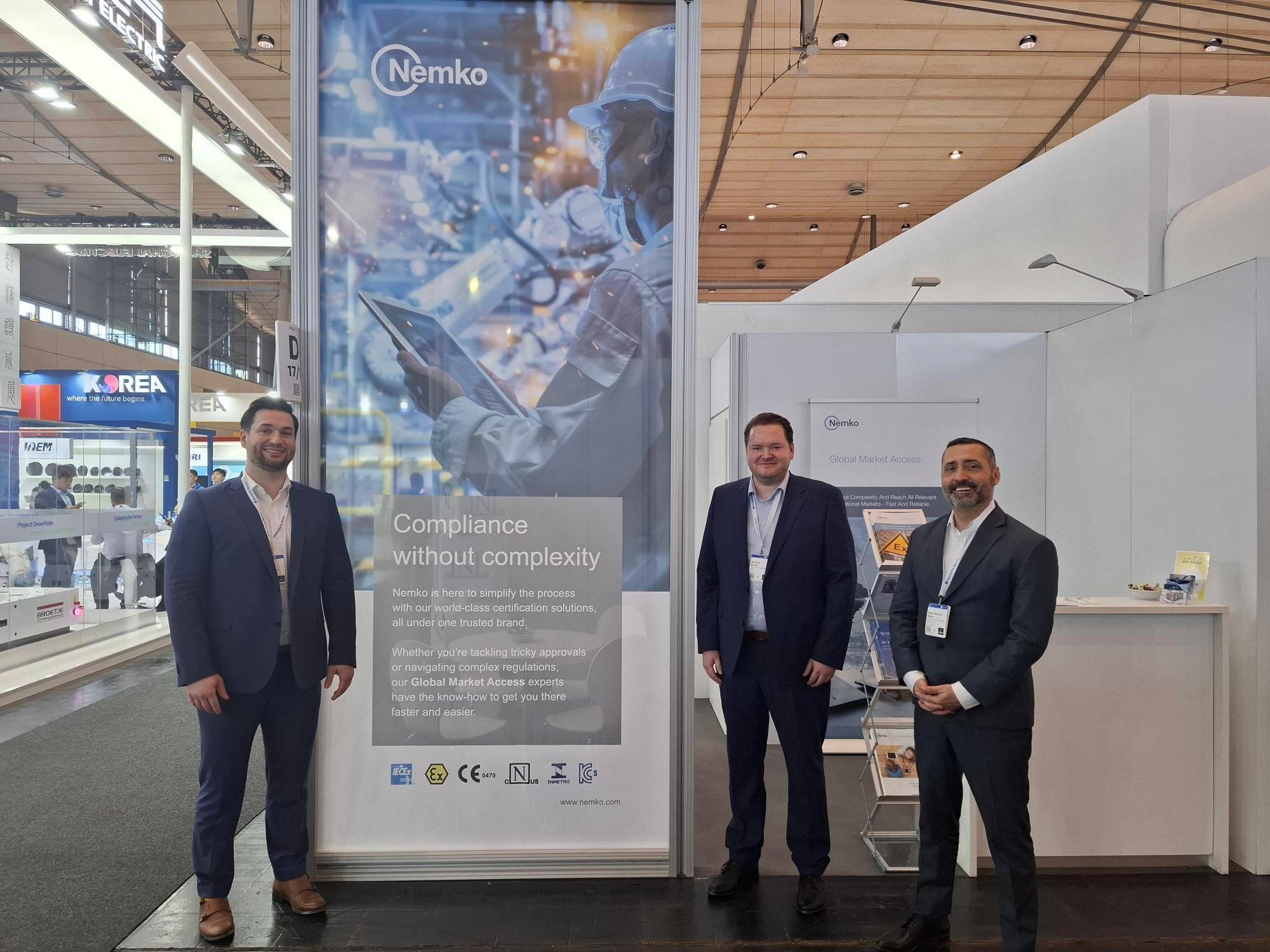AI Trust: Building Ethical, Compliant & Responsible AI Systems
AI Trust refers to the confidence stakeholders have in artificial intelligence systems to operate ethically, safely, and in compliance with regulations. Through a human-centered approach, it addresses uncertainty in AI systems and establishes the organization as a trustee of responsible technology. It encompasses seven key pillars that ensure AI systems are developed and deployed responsibly, creating value while minimizing risks.

Why AI Trust Matters
Establishing trust in AI systems delivers critical benefits for organizations across all sectors

Regulatory Compliance
Meet the requirements of emerging AI regulations like the EU AI Act, which mandates trustworthy AI principles for systems used within the EU market.

Risk Mitigation
Reduce the likelihood of AI-related incidents, biases, and failures that could damage your reputation, trigger regulatory penalties, or create legal liabilities.

Competitive Advantage
Differentiate your organization by demonstrating commitment to responsible AI practices, building customer confidence and stakeholder trust.

The AI Trust Challenge
Organizations developing and deploying AI systems face increasing scrutiny from regulators, customers, and the public. Academic research shows that without a structured approach to AI Trust that considers technology-based factors, organizations risk non-compliance with regulations, damaged reputation, and missed opportunities.
The complexity of AI systems, combined with rapidly evolving regulatory landscapes, creates significant challenges for organizations seeking to implement trustworthy AI practices.
of executives believe AI regulations will significantly impact their business
of consumers are concerned about how AI uses their data
potential fines under the EU AI Act for non-compliance
expected enforcement date for major AI regulations
Our Approach to AI Trust
Nemko Digital helps organizations establish AI Trust through a comprehensive, structured approach that addresses all seven pillars of trustworthy AI, promoting sustainable development and optimizing human-AI interactions.

We provide end-to-end support for AI Trust, from initial assessment to implementation and verification, ensuring your AI systems meet the highest standards of trustworthiness.
The Seven Pillars of AI Trust
AI Trust is built on seven foundational pillars that ensure AI systems are developed and used responsibly. These pillars, derived from the EU's Ethics Guidelines for Trustworthy AI, provide a comprehensive framework for establishing trust in AI systems.
1. Human Agency and Oversight
AI systems should support human autonomy and decision-making, not undermine it. This pillar ensures that humans maintain control over AI systems and can intervene when necessary. It includes mechanisms for human oversight, clear allocation of responsibilities, and appropriate levels of human control based on the system's risk level.
At Nemko Digital, we help organizations implement effective human oversight mechanisms, including human-in-the-loop, human-on-the-loop, and human-in-command approaches tailored to your specific AI applications.

Human oversight ensures AI systems remain under human control
2. Technical Robustness and Safety
AI systems must be resilient, secure, and safe throughout their lifecycle. This pillar focuses on preventing harm through technical robustness, including accuracy, reliability, and reproducibility of results. It also encompasses cybersecurity measures, fallback plans, and general safety considerations.
Our technical robustness assessments evaluate your AI systems against key criteria including accuracy metrics, resilience to attacks, fallback plans, and reproducibility of results. We help identify and address vulnerabilities before they lead to failures or security breaches.
3. Privacy and Data Governance
AI systems must respect privacy and ensure proper data governance. This pillar covers data quality, integrity, access protocols, and protection of personal data. It ensures that AI systems comply with privacy regulations like GDPR and implement privacy-by-design principles.
We provide comprehensive privacy and data governance frameworks that address data quality, data minimization, purpose limitation, and appropriate data protection measures for AI systems.
4. Transparency
AI systems should be transparent, with their capabilities and limitations openly communicated. This pillar focuses on explainability, traceability, and clear communication about AI systems. It ensures that decisions made by AI can be understood and traced.
Our transparency frameworks help you implement appropriate levels of explainability based on your AI system's risk level and use case, ensuring stakeholders can understand how and why decisions are made.

Transparency builds trust by making AI systems understandable
5. Diversity, Non-discrimination, and Fairness
AI systems should avoid unfair bias and discrimination, ensuring fair and equal treatment. This pillar addresses the prevention of bias in data and algorithms, ensuring accessibility, and involving diverse stakeholders in AI development.
We help organizations implement bias detection and mitigation strategies, fairness metrics, and inclusive design practices that ensure AI systems treat all users fairly and equitably.
6. Societal and Environmental Well-being
AI systems should benefit society and the environment. This pillar considers the broader impact of AI on society, including sustainability, social impact, and effects on democracy and social institutions.
Our societal impact assessments help you evaluate and optimize the broader effects of your AI systems, ensuring they contribute positively to society and minimize environmental impact.
7. Accountability
Organizations must take responsibility for their AI systems. This pillar focuses on auditability, risk assessment, and mechanisms for redress when AI systems cause harm. It ensures clear lines of responsibility and accountability for AI outcomes.
We help establish robust accountability frameworks including documentation practices, audit mechanisms, and governance structures that clearly define responsibilities for AI systems.
AI Trust and Regulatory Compliance
The landscape of AI regulation is rapidly evolving, with new frameworks emerging globally. Establishing AI Trust is increasingly becoming a legal requirement, not just a best practice.
EU AI Act
The EU AI Act is the world's first comprehensive legal framework for artificial intelligence. It categorizes AI systems based on risk levels and imposes different requirements accordingly. High-risk AI systems must comply with strict requirements directly aligned with the seven pillars of AI Trust.
At Nemko Digital, we provide EU AI Act compliance services that help organizations navigate this complex regulation, including risk categorization, conformity assessments, and implementation of required controls.
ISO/IEC Standards
International standards like ISO/IEC 42001 (AI Management Systems) and ISO/IEC 23894 (AI Risk Management) provide frameworks for implementing trustworthy AI practices. These standards offer structured approaches to establishing AI Trust within organizations.
Our AI Management Systems services help organizations implement these standards, creating robust governance frameworks for AI development and deployment.

The global AI regulatory landscape is rapidly evolving
Global AI Regulations
Beyond the EU, countries worldwide are developing their own AI regulations, including the UK, US, China, and Canada. While approaches vary, most share common principles aligned with the pillars of AI Trust.
We help organizations navigate this complex global landscape, ensuring compliance with relevant regulations across different jurisdictions.
Our AI Trust Services
Nemko Digital offers comprehensive services to help organizations establish AI Trust across all seven pillars. Our approach is tailored to your specific needs, industry context, and regulatory requirements.
AI Governance Assessment
We evaluate your current AI governance practices against best practices and regulatory requirements, identifying gaps and opportunities for improvement. Our assessment covers all seven pillars of AI Trust, providing a comprehensive view of your organization's AI trustworthiness.
Learn more about our AI Governance services.
Global Market Access and Risk Categorization
We help you understand how your AI systems are categorized under different regulatory frameworks, including the EU AI Act. This service identifies applicable requirements and helps you develop a compliance roadmap.
Learn more about our AI Regulatory Compliance services.
AI Trust Mark
Our AI Trust Mark certification verifies that your AI systems meet established standards for trustworthiness. This third-party verification builds stakeholder confidence and demonstrates your commitment to responsible AI.
Learn more about the AI Trust Mark.

Our services cover the entire AI Trust lifecycle
ISO/IEC 42001 Support
We help organizations implement AI management systems aligned with ISO/IEC 42001, establishing robust governance frameworks for AI development and deployment.
Learn more about our AI Management Systems services.
AI Training and Workshops
We provide specialized training and workshops on AI Trust, governance, and compliance. These programs build internal capability and awareness, ensuring your team has the knowledge and skills to implement trustworthy AI practices.
Learn more about our Training and Workshop services.
Ready to Establish AI Trust?
Contact our experts for a personalized consultation on how to implement trustworthy AI practices in your organization.
AI Trust in Action
See how organizations have successfully implemented AI Trust principles with Nemko Digital

Establishing AI Governance in Financial Services
A leading global financial services company needed to implement robust AI governance to comply with emerging regulations and build customer trust in their AI-powered services.
"Nemko Digital's structured approach to AI Trust helped us establish comprehensive governance that not only ensures compliance but also builds confidence with our customers and regulators. Their expertise in both AI technology and regulatory requirements was invaluable."
— Chief Risk Officer, Global Financial Services Company
Compliance with EU AI Act requirements
Reduction in AI-related risk incidents
Months to full AI governance implementation
Customer trust rating for AI systems
Frequently Asked Questions
AI Trust refers to the confidence stakeholders have in AI systems to operate ethically, safely, and in compliance with regulations. It encompasses seven key pillars: human agency and oversight, technical robustness, privacy and data governance, transparency, diversity and fairness, societal wellbeing, and accountability. These pillars work together to ensure AI systems are developed using a human-centered approach that addresses technology-based factors and promotes sustainable development, creating value while minimizing risks.
AI Trust is crucial for businesses as it ensures regulatory compliance, mitigates risks, builds customer confidence, creates competitive advantage, and enables sustainable innovation. With regulations like the EU AI Act coming into force, establishing trustworthy AI systems is becoming a legal requirement. Beyond compliance, trustworthy AI practices help prevent costly incidents, build stakeholder trust, and differentiate your organization in the marketplace.
Nemko Digital helps organizations establish AI Trust through comprehensive services including AI governance assessment, global market access and risk categorization, AI Trust Mark certification, readiness scans, ISO/IEC 42001 support, and specialized AI training and workshops. Our approach is tailored to your specific needs, industry context, and regulatory requirements, ensuring you implement trustworthy AI practices effectively and efficiently.
The seven pillars of AI Trust are:
- Human Agency and Oversight: Ensuring humans maintain control over AI systems
- Technical Robustness and Safety: Making AI systems resilient, secure, and safe
- Privacy and Data Governance: Respecting privacy and ensuring proper data management
- Transparency: Making AI systems explainable and understandable
- Diversity, Non-Discrimination, and Fairness: Preventing bias and ensuring equal treatment
- Societal and Environmental Wellbeing: Ensuring AI benefits society and the environment
- Accountability: Taking responsibility for AI systems and their impacts
The EU AI Act is a comprehensive regulatory framework that mandates AI Trust principles for systems used within the EU. It categorizes AI systems based on risk levels and requires different levels of compliance, including transparency, human oversight, and technical robustness, directly aligning with the pillars of AI Trust. High-risk AI systems must comply with strict requirements that mirror the seven pillars, making AI Trust not just a best practice but a legal requirement for many organizations.
Start Your AI Trust Journey Today
Contact our experts to discuss how we can help you establish trustworthy AI practices in your organization.
- Comprehensive assessment of your current AI practices
- Tailored recommendations based on your specific needs
- Clear roadmap for implementing AI Trust principles
- Ongoing support throughout your AI Trust journey
